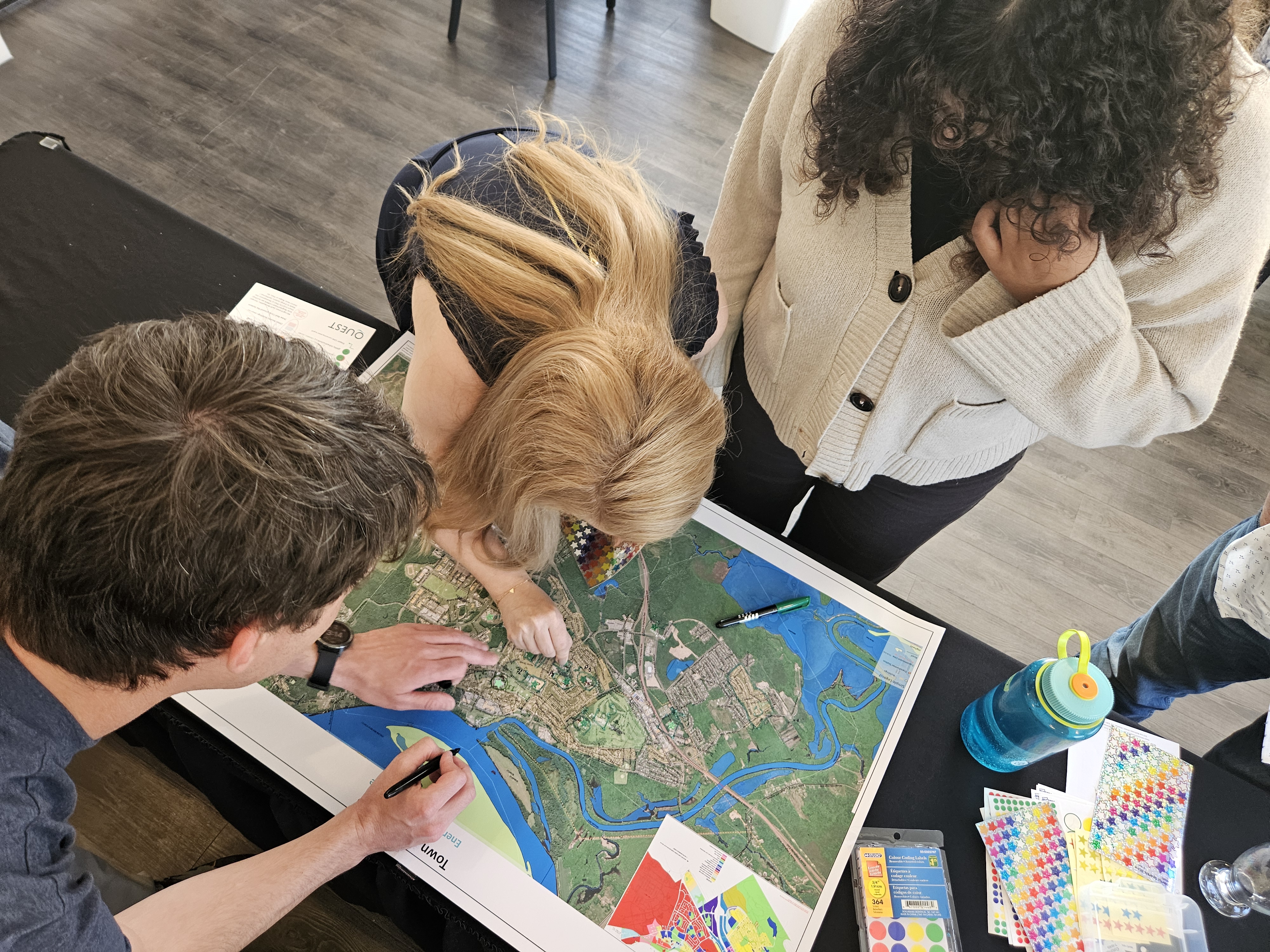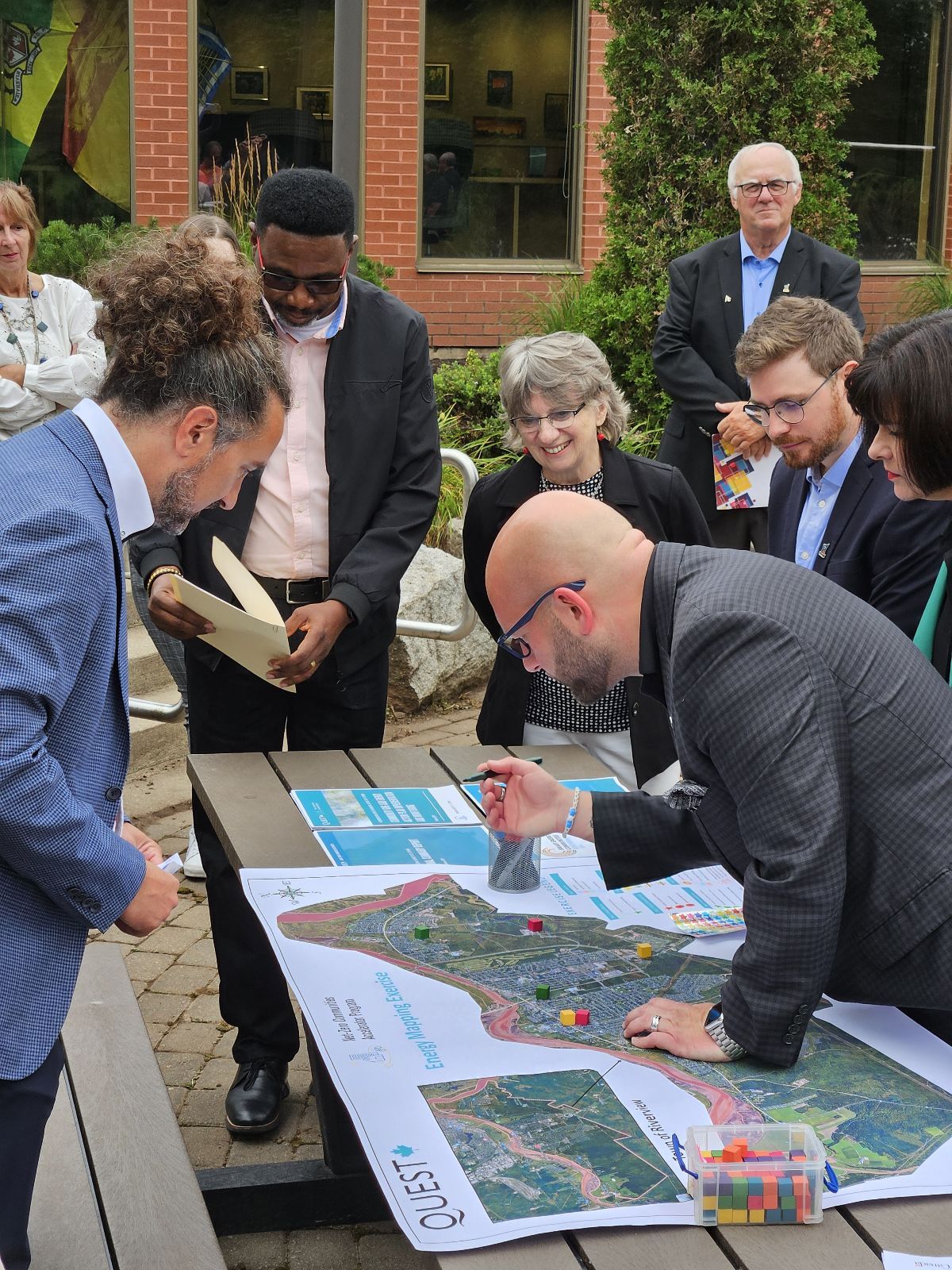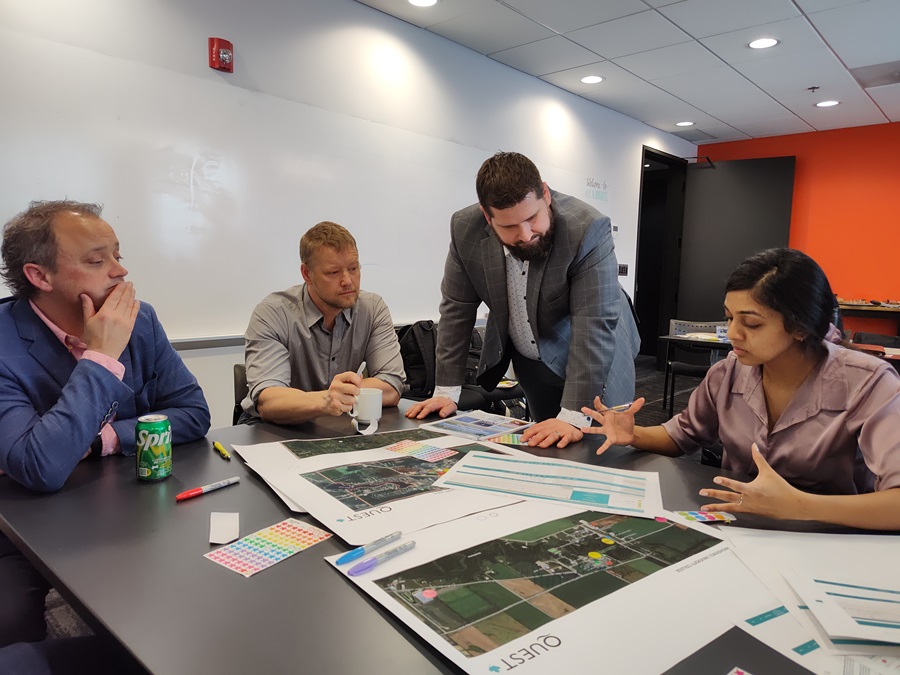QUEST Canada’s Net-Zero Community Accelerator, clearing local paths for a greener global future
Projects Sponsor
Canada’s motivation and actions to implement solutions to reduce GHG emissions is not only a climate objective. It is seen as an opportunity for social reform. Reconciliation, equity, diversity and inclusion, poverty reduction and economic growth must all be part of the long-term picture as communities shift toward net zero – and communities are a place where that shift absolutely needs to happen.
The pathway to net-zero emissions in Canada is through the leadership of local governments as drivers of change. Energy use by the multiple sectors at work in Canadian communities, from housing to transportation to local industry, accounts for 60 percent of total energy consumption and half of Canada’s GHG emissions. Mobilizing these communities is key if Canada is to meet its emission targets.
The stumbling block on this pathway is that local governments often lack the capacity – knowledge, tools, resources and financing – to do their part, and that’s where the Net-Zero Communities Accelerator Pilot Program comes into play, and plays hard.
The Net-Zero Communities Accelerator program, the work of QUEST Canada, a charity dedicated to supporting communities in Canada on their pathway to net zero, is designed to leverage the tools and resources already established at QUEST. The goal is to augment those tools through partnerships with other communities, to mobilize non-profits that have complementary tools, resources and capacity, and to address the gaps the QUEST Canada team’s research has identified.
The QUEST Canada team’s gap analysis and needs assessment review of 18 organizations and associated programs and services showed that local governments consistently rank lack of capacity (personnel, expertise, budget) and funding as the top barriers to implementing Community Energy and Emissions Plans (CEEPs).
The team learned that there was no program focused on the supporting structures (governance, policies, processes) needed to sustain continued efforts in community energy planning. Nor was there a single program designed to unite all the stakeholders needed for community energy solutions to be integrated. No one energy-related program that performs for all communities was on offer, making work instead of making jobs, and making jobs is part of what the transition to net zero will do.

It was clear to QUEST that communities needed a map to help get to the good, greener, cleaner place many of them aim to go. With the NCA, QUEST set out to find a way to move communities through the Partners for Climate Protection milestones and prepare them for funding from organizations such as the Federation of Canadian Municipalities Green Municipal Fund, and the Canadian Infrastructure Bank, in addition to other federal and provincial funding programs.
The QUEST Canada team began by curating a program able to meet a community where they were at in their journey. There is the ‘Seeker’ – curious about CEEPs but has not yet invested resources, and the ‘Doer’ – where someone in the community has responsibility for CEEPs and some work has been done. Of course, there is also the ‘Leader’ – well on their way to becoming a Net-Zero Community, or maybe already there and ready to move to the next level.
 The program, piloted in New Brunswick, was structured with a suite of services that were available to any participating community. The services received were based on a Smart Energy Benchmark assessment and engagement with the community on their interests, values, and priorities.
The program, piloted in New Brunswick, was structured with a suite of services that were available to any participating community. The services received were based on a Smart Energy Benchmark assessment and engagement with the community on their interests, values, and priorities.
The services offered include: a Community Energy Mapping workshop, recommendation and prioritization report integrating benchmark score and results of the mapping exercise, virtual community energy planning course for planning professionals, land-based renewable energy mapping assessment, community energy plan implementation workshop, community energy plan economic impact assessment, navigation services (tools, resources, funding access), a peer learning forum, and personalized coaching on an as-needed basis.
Communities, which include the municipality, local industry leaders, business leaders, energy service providers, and any other influential businesses or individuals in the community, are convened throughout the 3-year program.

Since the program pilot completion, the program has been expanded from capacity building (now called the Foundation Stream) with the addition of a second stream – Project Initiation. The Project Initiation stream is designed to build the foundation within a community to launch a program, a project, or a policy that will result in reduced energy usage and emissions across the community or region.
The pilot brought improved strategic alignment within the electric utility (NB Power) and enhanced human resource capacity and increased provincial support – including increased funding for the provincial low-income efficiency program and new incentives for fuel switching.
As well as delivering high-quality services and creating the knowledge, skills and expertise needed to create and implement CEEPs, the Net-Zero Communities Pilot Program provided high-quality services to New Brunswick municipalities, giving participants the knowledge, skills and expertise they needed to create their own individual Community Energy Plans. The Plans and the resulting integration into longer-term planning documents, policy development, and built environment changes will sustain their shift into the future.
As well, by bringing non-profits and charities working in the energy space together as collaborators rather than competitors for funding, all parties become more stable and thus productive.
Flexible and able to meet the variability of the needs of communities across Canada, this highly scalable program is building the local and cross-sectoral capacity needed to achieve a net-zero emissions economy in Canada. By removing the obstacles on the pathway to net zero, QUEST Canada has set out to be the nation’s neighbour saying: “Hey there, community, you look like you’ve got places to go, let me clear your way.”













